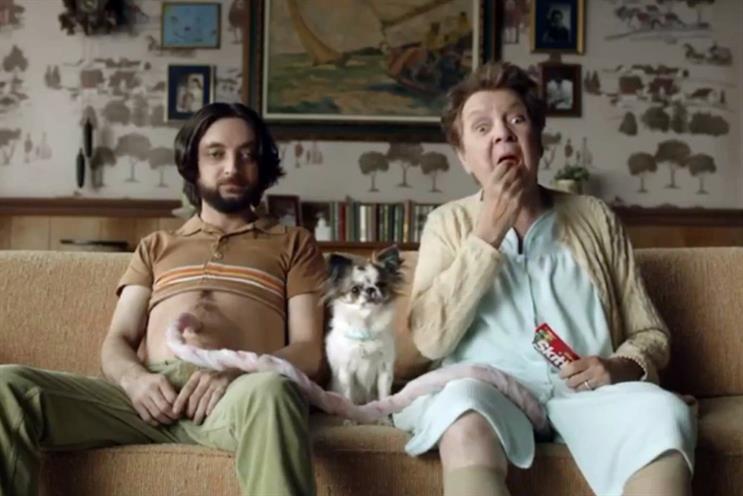So you’ve been through some kind of process that has resulted in you spending a not insignificant amount of money on making an ad (invariably, it’s a TV ad or some sort of film content). You pay even more money getting people to see whatever it is you’ve made.
And that’s when it happens.
Someone posts a snidey comment. More follow. Before you know it, a website has written a piece about why the thing you’ve made is insulting and in bad taste. The normally measured Twittersphere explodes with outrage and sarcasm.
Titles like 北京赛车pk10 document the whole show and guest writers pass comment. You pull the ad and say "sorry" if you’ve offended anyone.
We’ve had a fair few examples of this recently – Skittles' Mother’s Day "Umbilical cord" ad in the US and McDonald’s "dead dad" ad here in the UK.
Before that we had the "Cadbury Egg Hunt" that didn't include the word "Easter", and as a result of a deal on beer and wine.
And let’s not get started on that Pepsi ad.
Now I don’t like all of these pieces of communication. I think McDonalds' "dead dad" ad is mawkish, emotionally manipulative and cynical. I think the Skittles ad is a refreshing change from the dross that so often surrounds Mother’s Day and yet I agree that it is a bit unpleasant to look at.
The point is, it doesn’t matter whether I like them or not. Marketing communications don’t need to be liked necessarily to be effective.
The more an ad is noticed and absorbed into culture, the better. The more distinctive it is, the better. And guess what, not everyone is going to like what a campaign has to say and how it says it.
GoCompare.com’s annoying tenor made a comeback and sales went up. Thinking about car insurance? That jingle probably pops into your head. Over to you, ecommerce platform.
But that isn’t really the point. The point is we need to put our communications out there in the real world. Our own research found "brand apathy is twice as high for those who fail to involve themselves in consumer culture" (source: ).
The more an ad is noticed and absorbed into culture, the better. The more distinctive it is, the better. And guess what, not everyone is going to like what a campaign has to say and how it says it (like Adidas' "There will be haters" activity). It would be bloody boring if they did.
"Never apologise, never explain" is a phrase often attributed to 19th century Oxford scholar Benjamin Jowett. I get that he wasn’t listed on the stock exchange and didn’t have 1,001 stakeholders to contend with. But he had a point.
I’m not recommending to go deliberately out of your way to offend (although it is a legitimate strategy), but we live in a world where people are offended by Percy Pigs and put off by people who look after their grannies (watch Take Me Out sometime to see what I mean).
The problem is most acute in categories where the audience is everyone and everyone, and in work that wants to appeal to "18- to 80-year-old humans with faces". We search for the one universal insight that rules them all and come up with an idea that appeals to "light-users" – and then we hit a snag. People are people. We either bore them so they no longer notice us or – shock, horror – we offend some of them.
Cue the rush to apologise or pull the offending or failed piece of communication.
So it was refreshing to see Burger King buck the trend with its Whopper OK Google ad. The TV ad triggered Google Home and some Android devices to list the ingredients of the trusty Whopper. Not deterred by the fact that the internet gremlins had updated the Whopper Wikipedia page to list cyanide and "made with 100% medium-sized child with no preservatives" among the ingredients, the brand pushed on.
Google blocked it too, yet Burger King doubled down on some prime spots around the Jimmy Fallon and Jimmy Kimmel shows. They knew that being part of culture, and part of the conversation is incredibly valuable for a brand. People talked about it on the news. Epic fail? I don’t think so.
It’s easy, of course, to say all this. Unfurl the "Make braver work" banners and jump up and down before disappearing down the pub to moan about it all. The reality is, we’ve all got a part to play. Of course clients and brands can be braver but agencies need to help.
So what do I propose?
Be clear about your ambition. We won’t transform, reverse decline or grow like the clappers by doing something a bit like the thing we’ve always done.
Make it easy for ideas to be adopted, used, and talked about. Provide hooks. Pop up in the right places at the right time.
Foster an environment where we are able to have proper discussions about stuff. It’s OK not to know the answer and the reality is there will be more than one right one.
Speak to real people before we create ideas, not just afterwards. Test stuff in real time. See what works. Do more of that.
Stand for something, behave differently, have signature actions, be interesting and tap into people's interests in an authentic way.
Make it easy for ideas to be adopted, used, and talked about. Provide hooks. Pop up in the right places at the right time.
Do not try to please all the people all of the time. Do not flap about like the "weathervane" politicians Tony Benn once castigated.
Do not turn it into a process that we all grind our way through.
Do all of that and maybe, collectively, we’ll have the confidence not to reach for the emergency cord quite so often.
Adam Wright is a co-founder of Iris.


